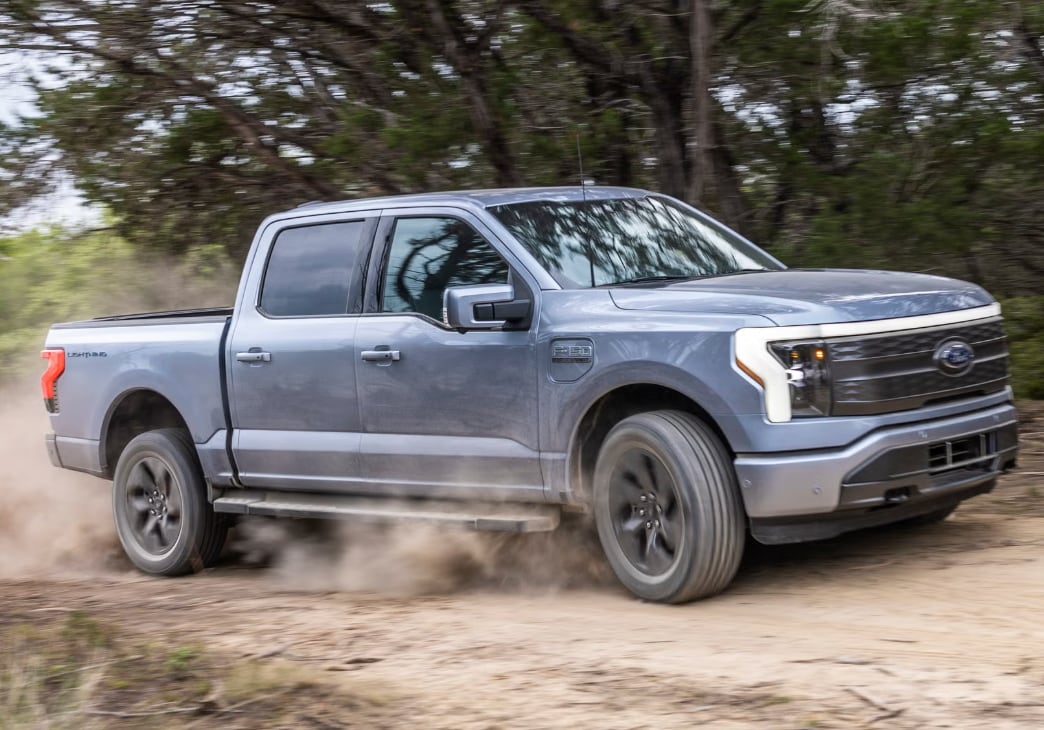
In an era where technology is advancing at lightning speed, the automotive industry stands at the forefront of innovation. Among the most exciting developments is the emergence of electric vehicles (EVs), promising not only a cleaner future but also a new driving experience. Enter the Ford F-150 Lightning: a groundbreaking fusion of time-tested truck features with cutting-edge electric propulsion. This vehicle doesn't just promise an emission-free ride; it brings forth a robust truck that retains its capability for real-world utility work.

Ford's venture into electrifying one of their most beloved models, the F-150, was met with both excitement and skepticism. The F-150 Lightning seeks to maintain the rugged charm and performance capabilities that have made its gas-fed predecessor a legend on wheels while embracing an electric future. With two powerful electric motors providing instant torque and an independent rear suspension system, this truck offers smoother handling without sacrificing any of its workhorse ethos. It’s a testament to Ford's commitment to delivering familiar functionality wrapped in futuristic technology.
The heart of any vehicle lies in its performance. For trucks, this often translates to power and durability—qualities that are synonymous with Ford’s legacy. The Lightning carries forward these traits but does so silently, thanks to twin electric motors that deliver impressive acceleration from zero RPMs—a stark contrast to traditional combustion engines that require revving up before hitting peak power. This instantaneous torque can be particularly useful when navigating rugged terrains or making quick maneuvers on job sites.
Despite these advantages, transitioning from gas-powered engines to battery-operated systems introduces certain limitations, especially concerning range—a critical consideration for those who depend on their trucks for long hauls or heavy-duty tasks. One notable challenge is towing capacity; while the F-150 Lightning can tow substantial loads comparable to its gas counterpart under ideal conditions, doing so significantly reduces its range by nearly two-thirds, according to testing reports. This reduction necessitates careful planning for longer trips or those involving substantial weight.
Nevertheless, it's essential not only to focus solely on limitations but also on the opportunities this transition presents. The shift towards electrification heralds significant environmental benefits by reducing emissions associated with traditional fuel consumption—a pivotal step towards sustainable transportation solutions globally embraced by increasingly eco-conscious consumers who seek greener alternatives without compromising quality or performance standards they’ve become accustomed too over decades past driving conventional fossil-fueled vehicles. If you are looking to upgrade, Bayside Ford in King George, Virginia can help you bring home your new ride!
Source: Car and Driver

Ford's venture into electrifying one of their most beloved models, the F-150, was met with both excitement and skepticism. The F-150 Lightning seeks to maintain the rugged charm and performance capabilities that have made its gas-fed predecessor a legend on wheels while embracing an electric future. With two powerful electric motors providing instant torque and an independent rear suspension system, this truck offers smoother handling without sacrificing any of its workhorse ethos. It’s a testament to Ford's commitment to delivering familiar functionality wrapped in futuristic technology.
The heart of any vehicle lies in its performance. For trucks, this often translates to power and durability—qualities that are synonymous with Ford’s legacy. The Lightning carries forward these traits but does so silently, thanks to twin electric motors that deliver impressive acceleration from zero RPMs—a stark contrast to traditional combustion engines that require revving up before hitting peak power. This instantaneous torque can be particularly useful when navigating rugged terrains or making quick maneuvers on job sites.
Despite these advantages, transitioning from gas-powered engines to battery-operated systems introduces certain limitations, especially concerning range—a critical consideration for those who depend on their trucks for long hauls or heavy-duty tasks. One notable challenge is towing capacity; while the F-150 Lightning can tow substantial loads comparable to its gas counterpart under ideal conditions, doing so significantly reduces its range by nearly two-thirds, according to testing reports. This reduction necessitates careful planning for longer trips or those involving substantial weight.
Nevertheless, it's essential not only to focus solely on limitations but also on the opportunities this transition presents. The shift towards electrification heralds significant environmental benefits by reducing emissions associated with traditional fuel consumption—a pivotal step towards sustainable transportation solutions globally embraced by increasingly eco-conscious consumers who seek greener alternatives without compromising quality or performance standards they’ve become accustomed too over decades past driving conventional fossil-fueled vehicles. If you are looking to upgrade, Bayside Ford in King George, Virginia can help you bring home your new ride!
Source: Car and Driver
Categories:
Social, Testimonials, News, Fleet, Body Shop, Rental, Finance, People, Community Events, Green, New Inventory, Pre-Owned Inventory, Service, Parts